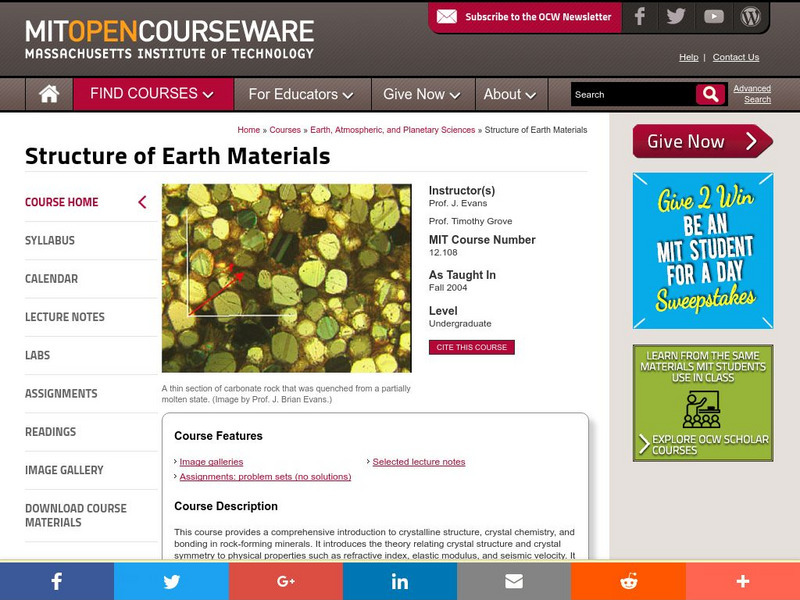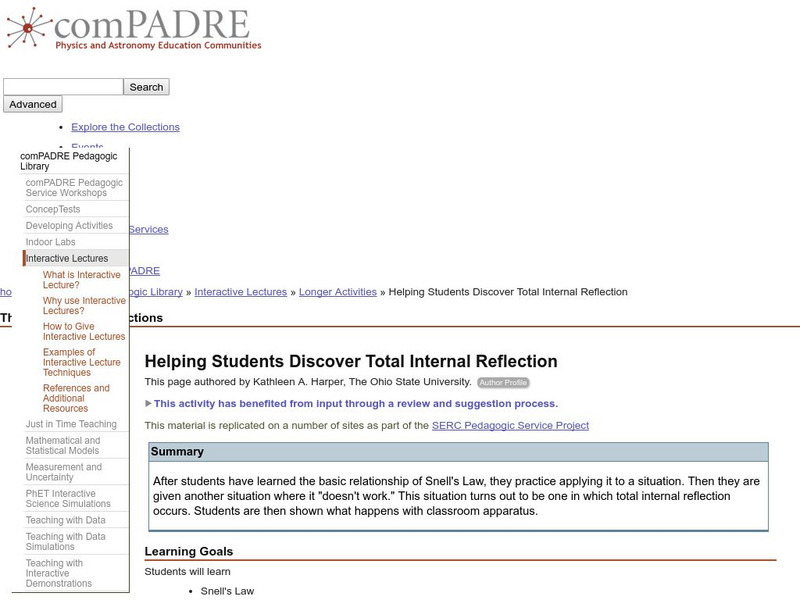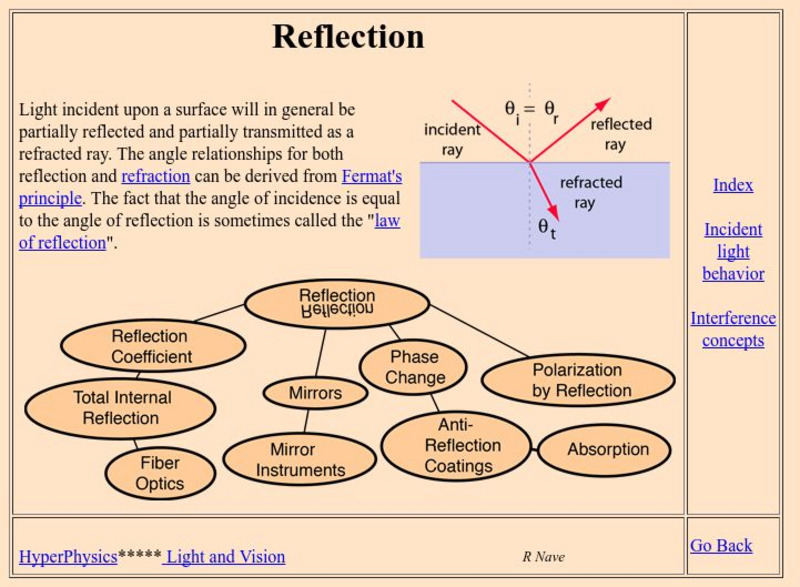BBC
Bbc: Gcse Bitesize: General Properties of Waves
Light travels as waves. Waves can be described by their amplitude, wavelength and frequency. The speed of a wave can be calculated from its frequency and wavelength.
American Museum of Natural History
American Museum of Natural History: See the Light
Take a look at light with these three easy experiments
Exploratorium
Exploratorium: Make Your Own Telescope
At this site students can make their own telescope and see how it works with this experiment. Out of a light, a pair of glasses, a magnifying glass and wax paper.
Other
Rice University/ats: Virtual Museum of Telescope History
This virtual museum has information on early telescopes which are mostly refractors. It contains research information on telescopes and early observatories as well as navigational equipment. Some parts still under construction.
Walter Fendt
Walter Fendt: Apps Zur Physik
This site, in German, offers numerous apps that illustrate common physics principles. Apps are organized into categories: mechanics, oscillations and waves, electrodynamics, optics, thermodynamics, the theory of relativity, physics of...
Massachusetts Institute of Technology
Mit: Open Course Ware: Structure of Earth Materials
A college course featuring mineral image galleries, labs, and instructor's notes on the topics of crystalline structure, crystal chemistry, and bonding in rock-forming minerals.
University of Illinois
University of Illinois Urbana Champaign: Ww2010: Sunset Colors
This site examines the optics of the atmosphere and explains why we see different colored sunsets.
Science Education Resource Center at Carleton College
Serc: Helping Students Discover Total Internal Reflection
After students have learned the basic relationship of Snell's Law, they practice applying it to a situation. Then they are given another situation where it doesn't work, which turns out to be one in which total internal reflection occurs.
Other
Weather Photography
Source of information on the subject of weather photography. There are great links, images and tips on equipment to use. For the intermediate to advanced photographer.
Exploratorium
Exploratorium: Science Snacks: Convection Current
This lesson plan is a great way to show convection currents in water. Students will see what happens to water as it gets warmed.
Other
The Disgustoscope
This is a resource to teach optics, while building a modified kaleidoscope that will provide 3-dimensional images.
Other
Byju's: Physics: Reflection of Waves
Explains what happens to a wave when it hits a fixed end or a free end.
Physics Classroom
The Physics Classroom: Ray Diagrams for Concave Mirrors Case B
Ray diagrams are useful tools for determining the location of an image as produced by a concave mirror. Of all the rays which emanate from the top of the object arrow and are incident to the mirror, there are two rays whose behavior at...
Physics Classroom
The Physics Classroom: Ray Diagrams for Concave Mirrors Case D
Ray diagrams are useful tools for determining the location of an image as produced by a concave mirror. Of all the rays which emanate from the top of the object arrow and are incident to the mirror, there are two rays whose behavior at...
Physics Classroom
The Physics Classroom: Image Formation for Concave Mirrors Case A
This animation depicts the path of light to each person's eye. Different people are sighting in different directions; yet each person is sighting at the same image location. In this animation the image location is the intersection point...
Science Struck
Science Struck: How Does Light Travel Through Space and Other Media?
A detailed discussion of the nature of light, how it can travel through a vacuum, and how the speed of light is affected when light travels through a medium.
University of Chicago
University of Chicago: History of Yerkes Observatory
Read about the history of the Yerkes Observatory, which was run by the University of Chicago. This observatory houses one of the few research grade refractors in the world. The observatory was closed in October 2018 and discussions were...
CK-12 Foundation
Ck 12: Physical Science: Reflection of Light
[Free Registration/Login may be required to access all resource tools.] Considers the reflection of light from both smooth and rough surfaces and the law of reflection.
Curated OER
Reekos Mad Scientist Lab: Light Refraction
Here are simple instructions for creating a prism using a glass of water, a small mirror, and a piece of paper.
Ducksters
Ducksters: Physics for Kids: Behavior of Light as a Wave
Kids learn about the behavior of light as a wave in the science of physics including reflection, refraction, and diffraction.
Optical Society
Optical Society of America: Optics for Kids: Guiding Light Optical Fiber
This experiment demonstrates the concept of total internal reflection, using basic materials. Accompanied by a detailed explanation of what's happening, and links to articles on reflection and refraction.
Georgia State University
Georgia State University: Hyper Physics: Total Internal Reflection
This physics department site provides a definition and explanation of the phenomenon of total internal reflection. Includes a diagram and an equation for calculating the critical angle for light approaching a surface.
Georgia State University
Georgia State University: Hyper Physics: Behavior of Incident Light
This site from Georgia State University is an indexing page for several other pages on the topic of reflection. Topics are treated in an understandable manner and utilize meaningful graphics.
Cosmo Learning
Cosmo Learning: Applied Science and Technology 210: Electrical Engineering
A collection of video lectures from a course that explores the application of electrical engineering topics. Webpage includes twenty-eight lectures from a professor at the University of California, Berkeley. Lectures vary in length and...
Other popular searches
- Light Refraction
- Reflection and Refraction
- Light Reflection Refraction
- Refraction of Light
- Index of Refraction
- Reflection Refraction
- Science Light Refraction
- Absolute Index of Refraction
- Wave Reflection Refraction
- Diffraction and Refraction
- Light Refraction Water
- Angle of Refraction













